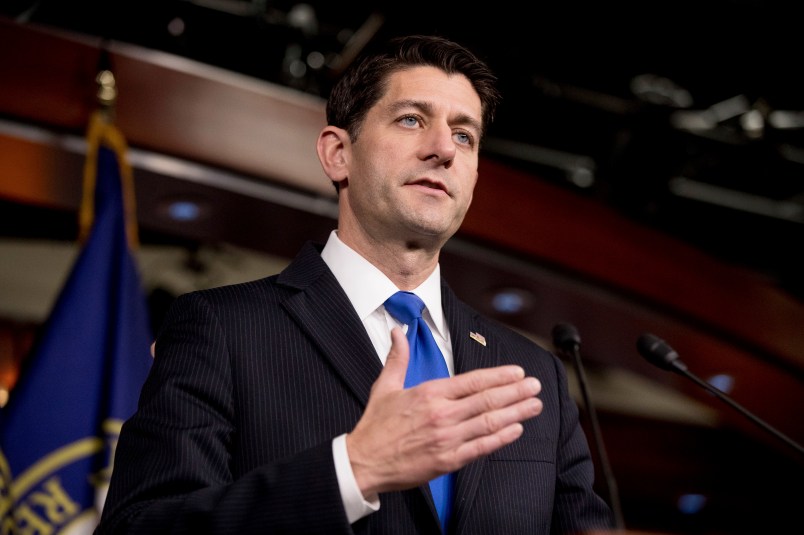The Committee for a Responsible Budget, a deficit hawk group that advocates for cuts to social benefits programs, outlined the costs of dismantling the Affordable Care Act in a new report, finding that a full Obamacare repeal would cost the government $350 billion over 10 years.
The shot across the bow from deficit hawks adds further political complications to Obamacare repeal for Republicans, who already face a possible meltdown in the insurance markets and the loss of insurance by potentially millions of Americans, depending on how and when they replace Obamacare.
The report, released Wednesday, broke down the costs and savings of repealing various parts of the law, as well as the effect delaying the repeal would have on the deficit.
“Repealing the entire ACA would leave no funds available for ‘replace’ legislation, and in fact would require further deficit reduction to avoid adding to the debt,” the report said, “However, a number of partial repeal options also exist.”
The government could achieve major savings — more than $1.5 trillion over 10 years — if it repealed the coverage provisions including the subsidies and Medicaid expansion alone. However, eliminating the laws taxes’ and other revenue boosters would cost the government $800 billion over 10 years, while restoring the ACA cuts to Medicare and Medicaid, and other related cuts would cost another $1.1 trillion over 10 years.
It also noted that repealing the coverage and tax provisions provisions with a two- or four-year delay would reduce the the savings of repealing those provisions.

The report recognized the trade-offs that come with partial repeal:
If policymakers repealed only the individual and employer mandates, the government would save about $300 billion over a decade as fewer Americans took advantage of government subsidized health care. Assuming that “guaranteed issue” and related insurance regulations remained in place, CBO estimates repealing the individual mandate would increase the number
of individuals without insurance by about 15 million (repealing the employer mandate would have a small additional effect). Modifications to guaranteed issue and related rules could increase the insurance rate but would likely also reduce budgetary savings from repealing the mandates.
The report urged lawmakers to “aim to continue the recent slowdown in
health care costs,” by “building upon the parts of the Affordable Care Act that appear to have worked to slow cost growth, learning from the parts that have not, and pursuing new changes to address areas of health reform that the ACA may have missed.”







Poison pill. If so many poor insureds would not be hurt, I would urge wholeheartedly the GOP to take this “medicine.”
The Republicans, good Christians that they are, don’t really think poor people deserve medical care and really wish they would die.
Ayn Rand, not Jesus Christ, is winning the heart and mind of Paul Ryan.
I think something weird is happening. I predict that in 2018 we’re going to read stories with headlines like"What happened to the GOP?" And trump throwing them under the bus for hindering his greatness.
But then I predicted a Cubs collapse, and an HRC victory.
Silly sockpuppets. Pretending Republicans actually care about deficits rather than just using deficit fear mongering as a way of sabotaging and undermining support for Democratic policy initiatives.